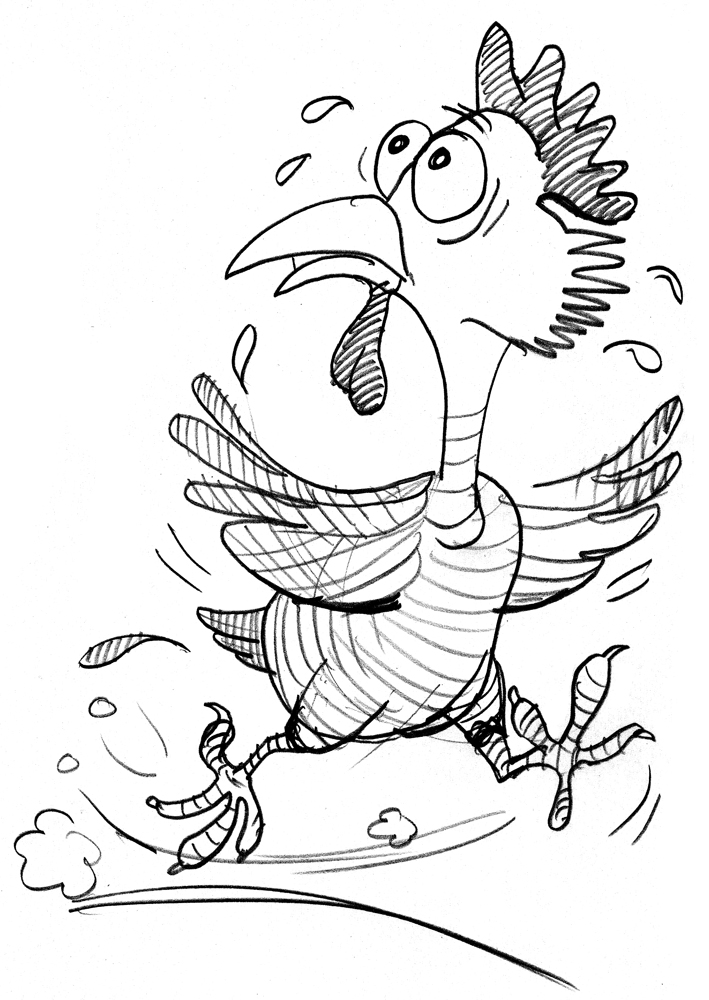I have a friend who worked for the medical publication industry — which creates articles and circulars that enjoin:
“Get your flu shot and eat those veggies!”
Years ago, she explained, the written material was created at various reading levels, with the premiere offerings targeted to grade 14 or 15 (a sophomore or junior at college), designed for consumers who were truly curious about healthcare issues and wanted sufficient information to make intelligent choices. That was years ago. Now, most of the material is aimed at the 6th grade level, with the information designed for public aid recipients targeted to the 3rd and 4th grade reading level, or below:

“Flu shots! Veggies!”
While this says something disconcerting about the attitude of the medical and corporate publication establishments toward people they consider poor, it also maligns our entire reading populace: our top readers are comfortable with the vocabulary, syntax, and content of the average 13-year-old, and if you’ve picked up a newspaper lately, or read an article online, you’ll notice that there’s not an abundance of detail, complexity, or sophistication to what, for many people, is the primary reading diet.
Dumbing Down is Dangerous
Why does this matter, other than that it’s insulting to our mental aptitude?
It matters because it’s dangerous. A population accustomed to a lower and lower reading level, its minds unengaged by written content’s demands that the reader comprehend, analyze, question, and discern, becomes dumbed down to the point that people accept what they’re told — not because the information is true, valid, or believable, but because it’s presented in the right fashion: belligerently, or calmly, but always confidently and with no allowance for disagreement.
Bill O’Reilly or Barack Obama, Glenn Beck or Henry Kissinger — it’s not what is said so much as how, and if you can make people feel reluctant to question your pronouncements, then dialogue, and the understanding that there is always more than one side to any argument, becomes obsolete. People won’t disagree simply because they don’t want to look dumb, and many people — insecure creatures that we are — labor under the belief that we ARE dumb — because we don’t hold the right degrees, make an outrageous salary at our job, or host a network news talk show.
Climb out of the Pit
But we’re not dumb, my friends, and one of the best ways we can climb out of this hole is to increase — not decrease — our reading ability. If you’re a Christian, you’ve got a book on your coffee table, written in your own language, that in years past — back when ordinary readers enjoyed Dickens and Austen, Twain and Bronte — was the first and/or primary reading resource of many: the Bible.

The apostle Peter, in 2 Peter 3:16, says about the apostle Paul’s writings: “His letters contain some thing that are hard to understand, which ignorant and unstable people distort, as they do the other Scriptures, to their own destruction.”
Paul is, indeed, a difficult writer to understand, a true master at crafting long, grammatically correct sentences which in their English translation are replete with commas, semi-colons, prepositions, dependent clauses, and dashes, but it’s because he’s trying to go so much more beyond, “Jesus loves you,” to deeper truths that confirm, and re-confirm, the mystery of that love.
The more one reads the Bible, the better one gets at it, and in the process of absorbing the history of the Israelites in many of the Old Testament books, or the poetry of the psalms, or the metaphorical language of Isaiah and the prophets, or the difference in tone between the gospel writers Matthew and John, one becomes a more sophisticated reader, and one becomes able to stop and ask,
“Now what is being said here?”
Critical, Discerning, Skeptical — YES
As readers, we start to ask questions, seek answers, build our vocabulary, become comfortable with different writing styles and formats, and gain knowledge of truth that enables us to look at outside sources — the news, movies, TV shows, pop publications, novels, newsletters, press releases, political speeches, non-fiction books (some of which are more fiction than non), YouTube videos, and medical brochures written to third graders — with a more practiced, sophisticated, discerning, intelligent, skeptical eye.
And the beauty of this is that this education is open to anyone with the ability — or desire — to read, and a Bible written in his or her own language. Public aid recipients need not accept that they read at the third grade level, simply because government and corporate entities insist that they do. And indeed, Jesus’ message of hope — that there is life after death and its abundant beauty is available to ALL, not just a globalist few — is one that the poor, the downtrodden, the powerless, and the weak have gravitated to, because it gives us a hope far beyond anything that Bill Gates’ and Warren Buffet’s widely publicized philanthropic productions could ever do.
Only rich people can become sophisticated at discerning the nuances in fine food or wine, because only they can afford to do so. But to become a sophisticated reader: that is within reach of us all, and it’s a far, far more important goal to achieve.
Which is why so much effort is being made these days, to dumb us all down.
Don’t succumb.
Thank You
Thank you for joining me at Commonsense Christianity, where my major encouragement — always — is for individual Christians to grab onto their spiritual lives and get serious about getting to know God. This is done — not through following the exhortations of others and depending upon “experts” to interpret spiritual matters to them — but through communicating, directly through prayer, with God, and allowing Him to train us into becoming the person He has designed us to be.
Posts similar to this one are
Are You Qualified to Study the Bible?
People Call Us Stupid, You Know
The Misfit Christian (the more you ask questions, the less you fit into the crowd — and that includes the church crowd. If you’re tired of being made to feel like a pariah, hit the link and at least look inside the book. If you like what you see, read the whole thing.)

